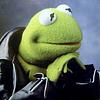Take a photo of a barcode or cover
Not too sure why this was science fiction, all the characters name were weighted with history. Was interesting and certainly well written, however there were a lot of characters to attempt to keep track of. I definitely feel a bit lost, especially with how the story began. Will forget the book tomorrow anyway...
reflective
medium-paced
Plot or Character Driven:
Character
Strong character development:
N/A
Loveable characters:
Yes
Diverse cast of characters:
No
Flaws of characters a main focus:
Complicated
challenging
mysterious
medium-paced
Plot or Character Driven:
A mix
Strong character development:
Yes
Loveable characters:
No
I went back and forth with this one. Sometimes it really moved and was interesting, sometimes it felt like a chore. It took a while to get used to the affected speech and I’m still not clear on what this new outpost world is supposed to be. It did make me curious to read stories about the Hindu pantheon, so that’s cool.
The front cover of this book labels Lord of Light "The Legendary SF Classic," and the blurb on the back cover begins:
That said, there is no good reason to give the protagonist this many names, and freely switch between them in the text:

Earth is long since dead. On a colony planet, a band of men has gained control of technology...From these two data points, I was sure I was about to read a straight-forward sci-fi adventure, possibly in the vein of [a:Robert A. Heinlein|205|Robert A. Heinlein|http://d.gr-assets.com/authors/1192826560p2/205.jpg] or [a:Ray Bradbury|1630|Ray Bradbury|http://d.gr-assets.com/authors/1361491094p2/1630.jpg]. What I should have paid more attention to was the gigantic fucking Buddha statue on the front cover, and the conclusion of the back cover blurb:
...made themselves immortal, and now rule their world as the gods of the Hindu pantheon. Only one dares oppose them: he who was once Siddhartha and is now Mahasamatman. Binder of Demons, Lord of Light.This second-half of the quote, removed from the aforementioned sci-fi context, reads a lot more like an epic fantasy, which is what this book actually is -- albeit with a diverse assortment of actual established religions from our culture. Once I adjusted my expectations, accepted the non-linear storytelling, and figured out the multitude of names -- not to mention body/gender switching -- for each character, I really got into this book.
That said, there is no good reason to give the protagonist this many names, and freely switch between them in the text:

imaginative like nothing else. infinitely grateful for the recommendation.
I have to admit upfront that this kind of sci-fi (fantasy?) just isn’t my genre. So perhaps my relatively low rating of this book reflects my inability to appreciate even what is considered to be one of the classics of sci-fi. I found this book very hard to follow. The characters all have a lot of names. I didn’t quite understand the “rules” of the world in this book. And all along I felt like I was witnessing an inside joke as an outsider.
Disclaimer: I haven’t the faintest idea how much of the mythology is true to form and whether the concepts and philosophy bandied about are accurate to the real-life versions of Hinduism and Buddhism presented. The setting of the book implies that it’s haphazardly cobbled together from the dusty memories of people who were not well-versed in the concepts to begin with and then proceeded to stretch them into a shape which suited their purposes. In any case, it’s only window-dressing for the plot.
I loved this book. It definitely broadened my horizons and expanded what I think of as sci-fi. There is a reason it is considered a classic and in my opinion it stands the test of time very well.
It may be because I’m not well-read in sci-fi or too influenced about the prejudices of what sci-fi is and how it is supposed to be written, but I was very surprised by the language of the book and it’s style, which are much more in tune with what I consider classic fantasy. I’m fact, it comes to me that the reason I loved it so much is because it deals with themes and topics that are very similar to Sanderson, i.e. how history is mythologized as time passes and becomes indistinguishable from fable and how religion arises and develops based on the unique environment the human society is dealing with. Or, as is the case here, how it re-emerges half-remembered, is introduced to gain control of the population and then adapts and quickly grows out of the theological control of the ruling caste. This is a fascinating topic to me because it requires a sociological and psychological understanding (especially mass psychology) or simply very good observation and a significant amount of empathy and life experience to do well. And I think it is done well here.
Couple this with the dry wit, humble yet devious and mischievous nature of the (perhaps only seemingly) underdog protagonist, who reads as an agnostic, and I’m doubly sold.
The cherry on the cake is the social reform angle: the oppressed underclass who is deprived of science of all things rising up against their very flawed god-like overlords. Triple whammy. The way the almost mystical powers of the gods (in effect the crew of the spaceship settling the alien planet, who retain their memories of Earth and its advanced technologies) are given subtle hints of technological explanation without disturbing the delicate balance of sci-fi and fantasy is also great.
Finally, the humanity of the characters involved is very moving. For the first time, it was character flaws that drew me in. Behavior that I would find and have found abhorrent both in real life and in other books suddenly made me care even more. They had depth and consistency and were not sacrificed to plot development. On the contrary, the plot grew organically from character interactions, as is the case with every good Sanderson book.
Honestly, it’s just a great book.
I loved this book. It definitely broadened my horizons and expanded what I think of as sci-fi. There is a reason it is considered a classic and in my opinion it stands the test of time very well.
It may be because I’m not well-read in sci-fi or too influenced about the prejudices of what sci-fi is and how it is supposed to be written, but I was very surprised by the language of the book and it’s style, which are much more in tune with what I consider classic fantasy. I’m fact, it comes to me that the reason I loved it so much is because it deals with themes and topics that are very similar to Sanderson, i.e. how history is mythologized as time passes and becomes indistinguishable from fable and how religion arises and develops based on the unique environment the human society is dealing with. Or, as is the case here, how it re-emerges half-remembered, is introduced to gain control of the population and then adapts and quickly grows out of the theological control of the ruling caste. This is a fascinating topic to me because it requires a sociological and psychological understanding (especially mass psychology) or simply very good observation and a significant amount of empathy and life experience to do well. And I think it is done well here.
Couple this with the dry wit, humble yet devious and mischievous nature of the (perhaps only seemingly) underdog protagonist, who reads as an agnostic, and I’m doubly sold.
The cherry on the cake is the social reform angle: the oppressed underclass who is deprived of science of all things rising up against their very flawed god-like overlords. Triple whammy. The way the almost mystical powers of the gods (in effect the crew of the spaceship settling the alien planet, who retain their memories of Earth and its advanced technologies) are given subtle hints of technological explanation without disturbing the delicate balance of sci-fi and fantasy is also great.
Finally, the humanity of the characters involved is very moving. For the first time, it was character flaws that drew me in. Behavior that I would find and have found abhorrent both in real life and in other books suddenly made me care even more. They had depth and consistency and were not sacrificed to plot development. On the contrary, the plot grew organically from character interactions, as is the case with every good Sanderson book.
Honestly, it’s just a great book.
adventurous
funny
informative
reflective
medium-paced
Plot or Character Driven:
Character
Strong character development:
Yes
Loveable characters:
Yes
Diverse cast of characters:
Complicated
Flaws of characters a main focus:
Yes
Well... the book was definitely well written, the concept was highly interesting, and the dialogue is what kept me engaged. On the other hand, I had a hard time following what was happening and always found myself backtracking to clarify a character or discussion. There were a lot of characters that were reincarnated into other characters and I found the read to be more work than enjoyable.


